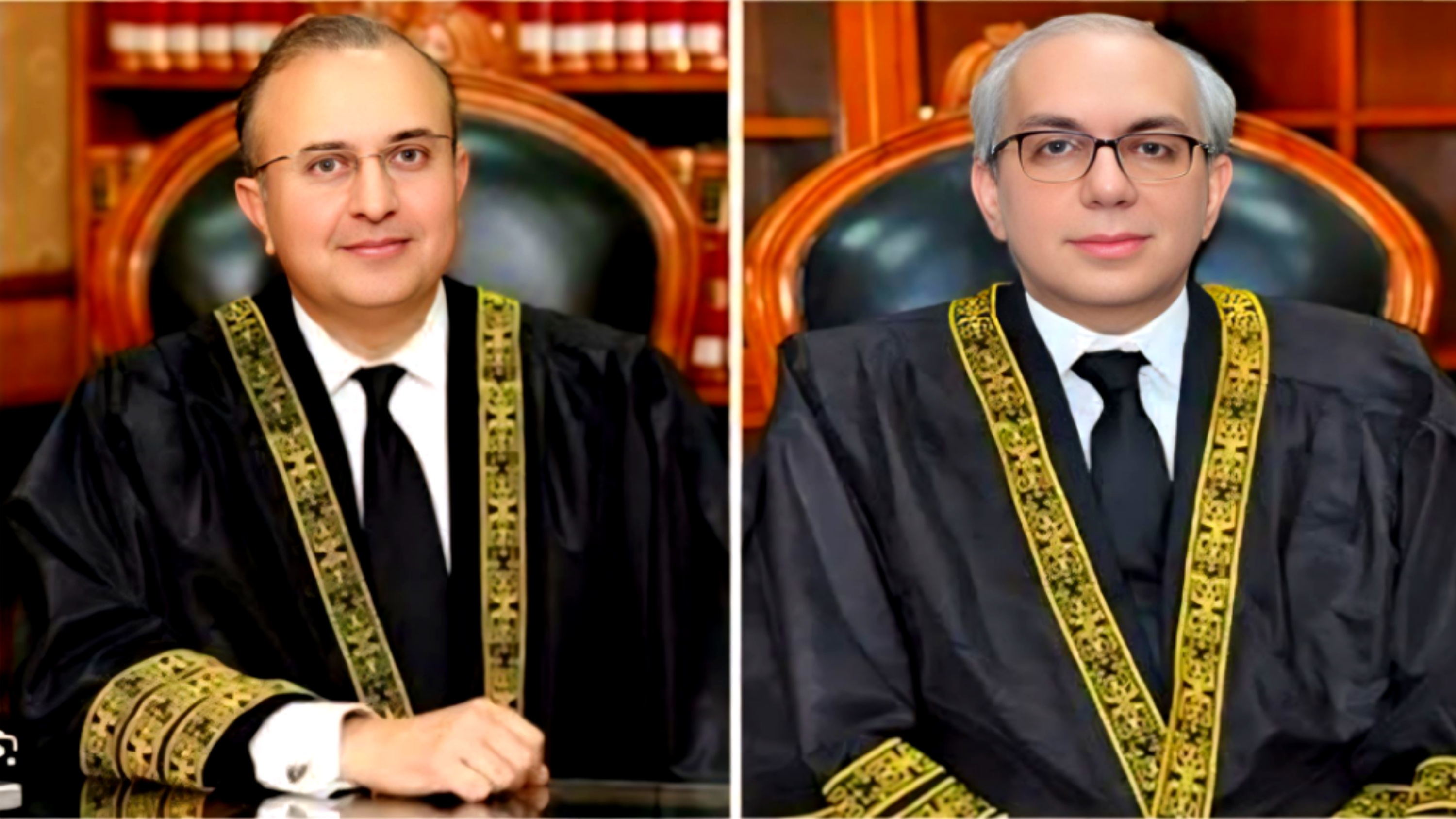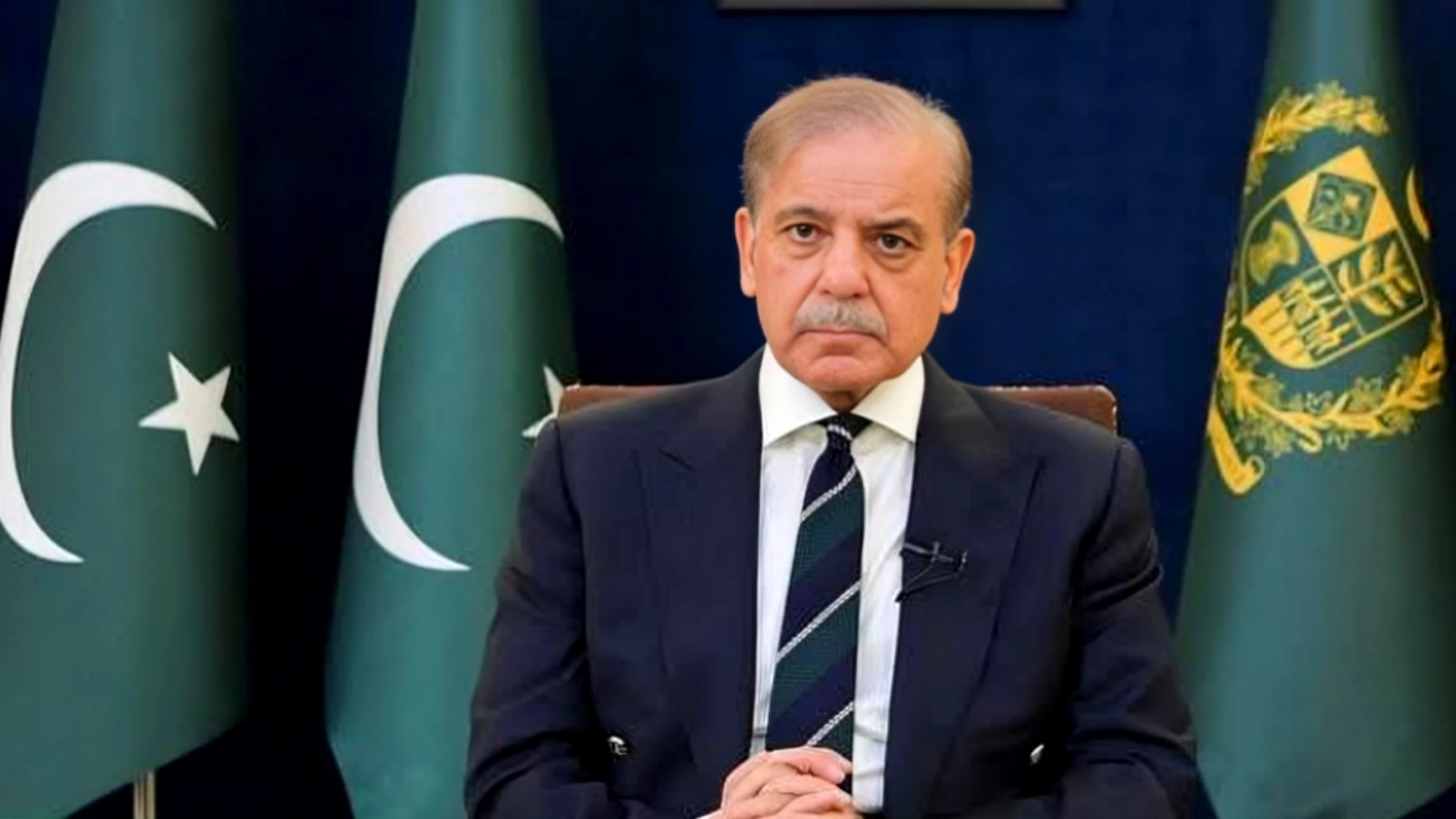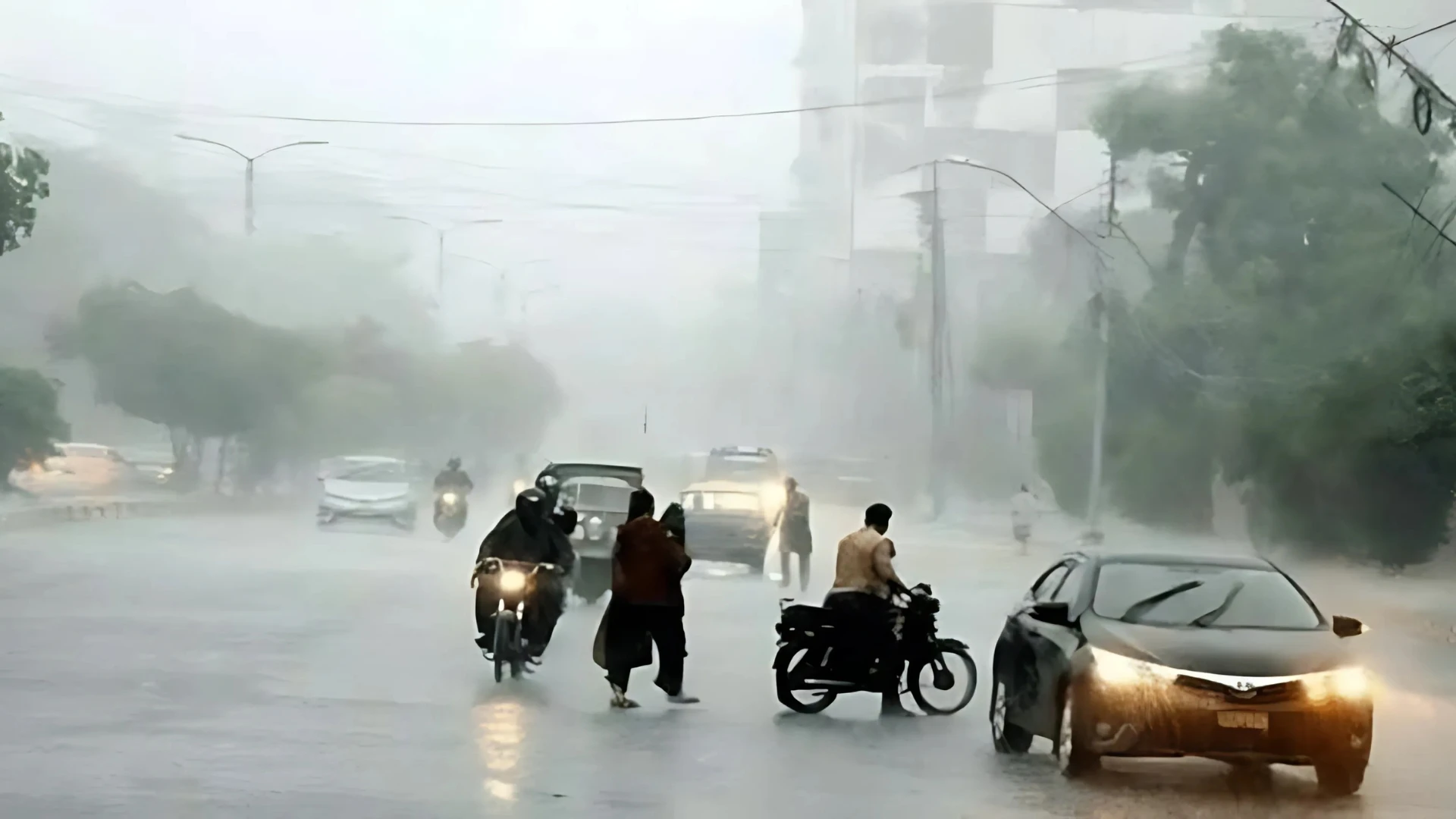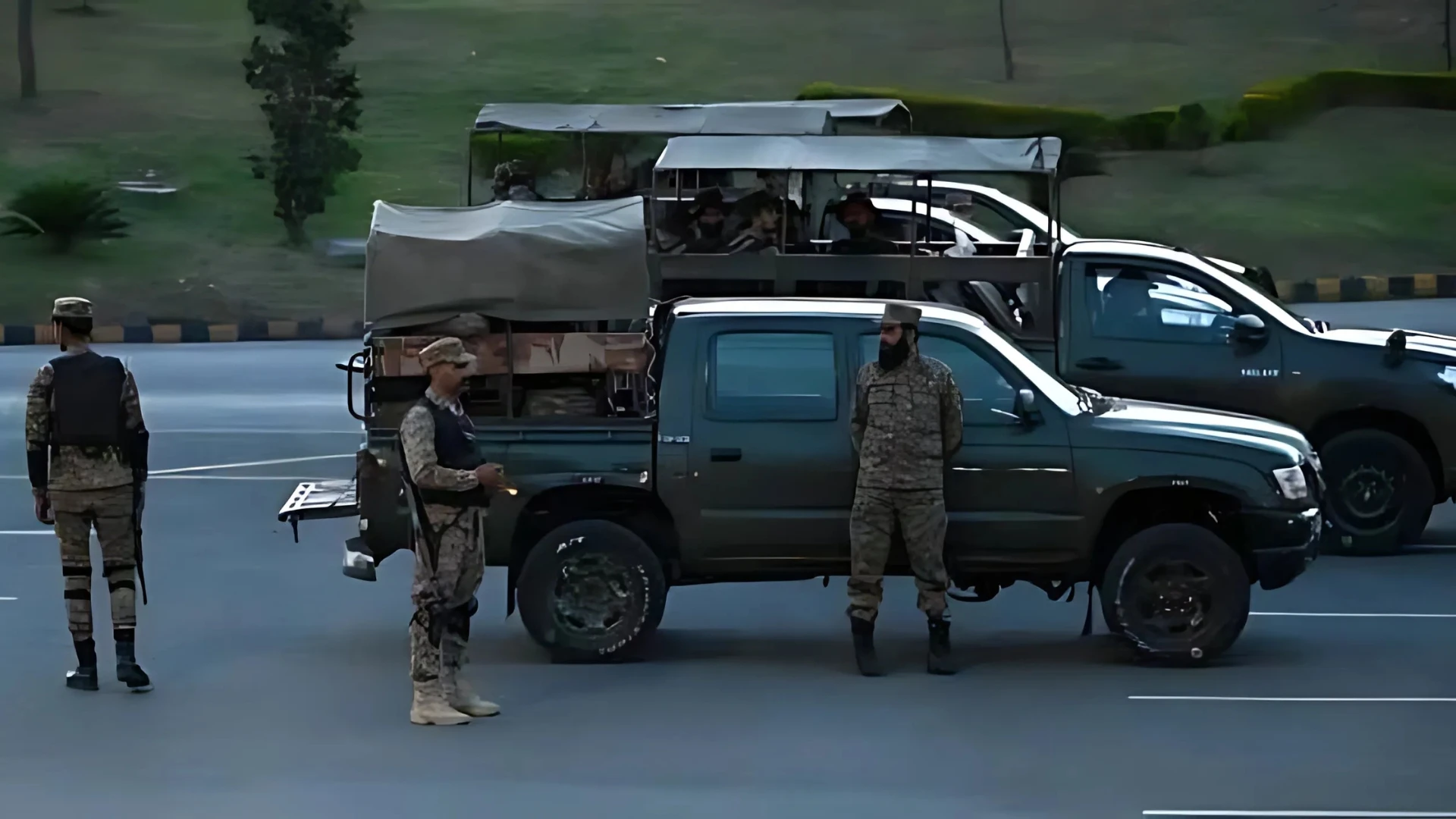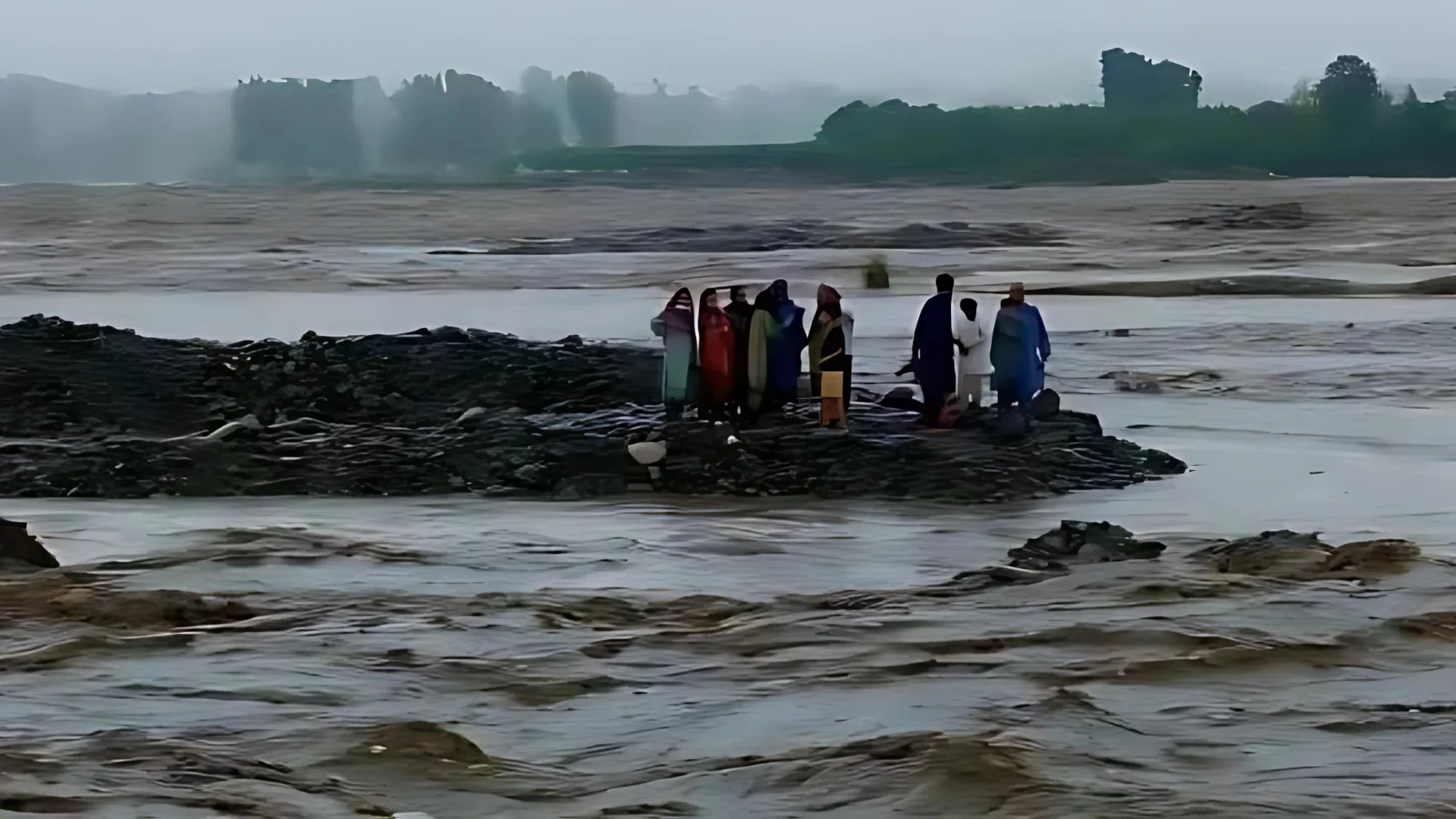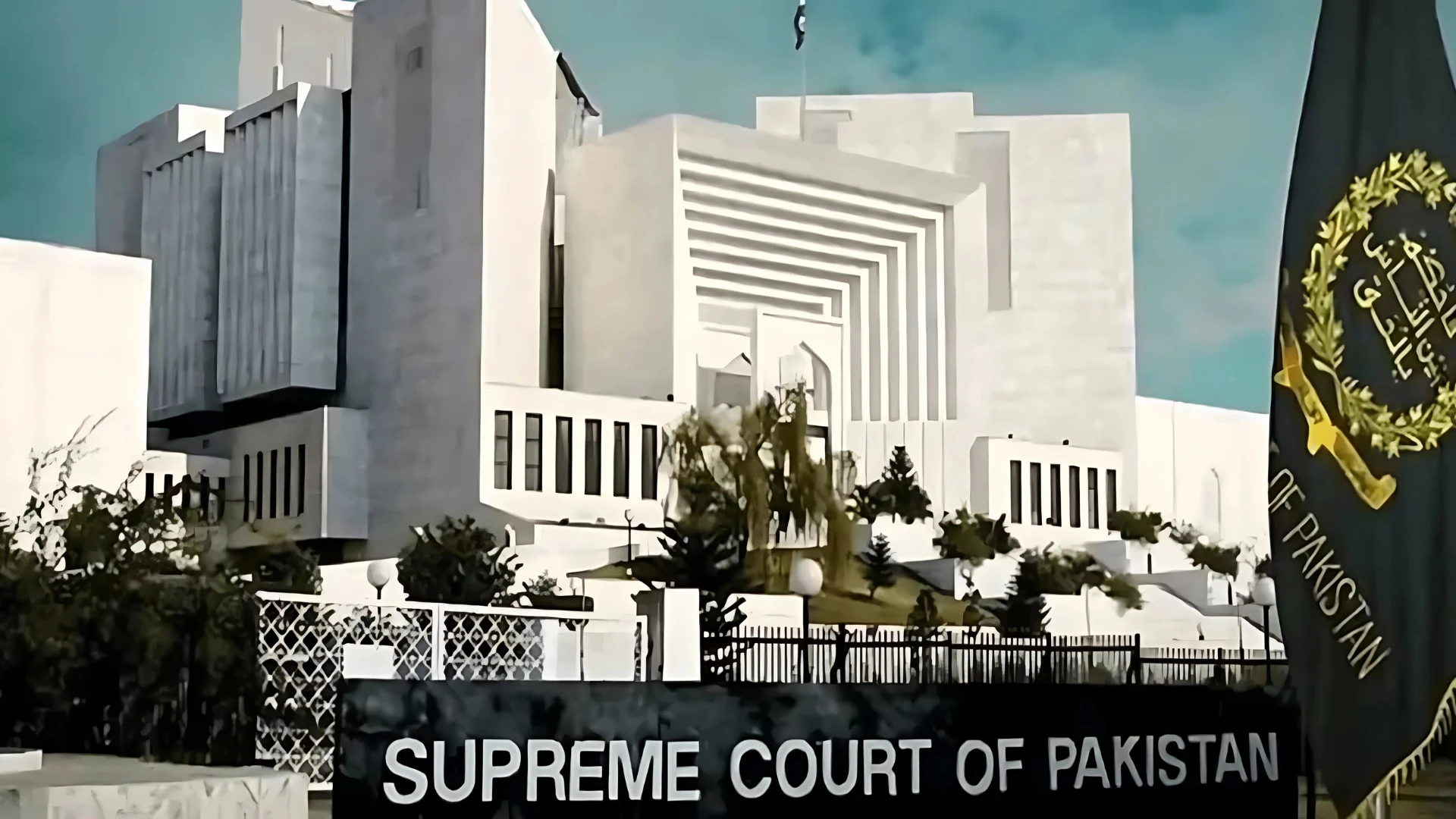Islamabad: Despite protests by lawyers outside the Supreme Court and a boycott by four of its members, the Judicial Commission of Pakistan (JCP) on Monday went ahead with the nomination of six new judges and an acting judge for the Supreme Court under the 26th Amendment to the Constitution.
The meeting, chaired by Chief Justice Yahya Afridi, took place inside the Supreme Court while roads outside remained blocked due to demonstrations by lawyers. The protestors, holding placards and chanting slogans, voiced their opposition to the constitutional amendment.
Adding to the controversy, Supreme Court Justices Mansoor Ali Shah and Munib Akhtar, along with PTI representatives Barrister Ali Zafar and Barrister Gohar Ali Khan, refused to participate in the meeting due to their concerns regarding the amendment.
Originally, the commission was set to nominate eight judges, but the decision on two judges from the Lahore High Court was deferred. However, by majority vote, the JCP approved the elevation of Balochistan High Court Chief Justice Muhammad Hashim Khan Kakar, Sindh High Court Chief Justice Muhammad Shafi Siddiqui, Justice Salahuddin Panhwar, Islamabad High Court Chief Justice Aamer Farooq, Peshawar High Court Chief Justice Ishtiaq Ibrahim, and Justice Shakeel Ahmad.
Additionally, Islamabad High Court’s Justice Miangul Hassan Aurangzeb was appointed as an acting judge of the Supreme Court under Article 181 of the Constitution. While seven members voted in favor of Justice Farooq’s elevation, Justice Jamal Khan Mandokhail and JCP member Akhtar Hussain dissented.
During the meeting, Justices Shah and Akhtar cited a letter from four Supreme Court judges requesting a postponement of the session until a decision was reached on the 26th Amendment and the seniority of IHC judges. When their request was ignored, they walked out.
PTI representatives also urged the commission to delay the meeting until the issue of IHC judges’ seniority was resolved. However, the JCP members advised them to raise their concerns when the matter came up for discussion. Following this, the PTI representatives chose to exit the session.
Later, Barrister Ali Zafar stated that their party had instructed them not to participate if the JCP ignored their request. Barrister Gohar Ali Khan also confirmed their alignment with the two boycotting judges.
Chief Justice Afridi recommended the appointment of Justice Aurangzeb as an acting Supreme Court judge to expedite the resolution of pending tax and commercial cases. The appointment was made in response to a request from Prime Minister Shehbaz Sharif and the Federal Board of Revenue, citing significant financial losses due to delayed cases. Justice Aurangzeb’s tenure as an acting judge will continue at the president’s discretion, with the possibility of his confirmation as a permanent Supreme Court judge or return to the IHC.
Meanwhile, the All-Pakistan Lawyers Action Committee staged a demonstration urging the judiciary to uphold its independence and resist political and unconstitutional influences. Protesters gathered at Serena Chowk, while all entry routes to the Red Zone were sealed.
Despite the protest, major legal bodies—including the Pakistan Bar Council, Supreme Court Bar Association, Punjab Bar Council, Khyber Pakhtunkhwa Bar Council, Balochistan High Court Bar Association, and Sindh High Court Bar Association—distanced themselves from the strike. They criticized certain factions within the legal community for attempting to create unrest for political motives.
In a separate development, the seven-judge Constitutional Bench was unable to proceed with the military court case hearing due to the absence of senior lawyer Salman Akram Raja. The hearing is now scheduled for Tuesday.


